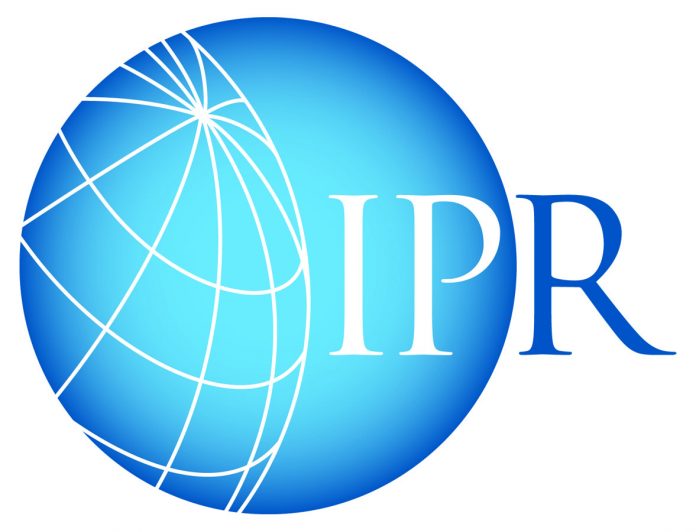

This article is authored by Akash Krishnan, a law student from ICFAI Law School, Hyderabad. It discusses in detail the scope of building a career in IPR, the different roles an IP attorney plays in the legal domain and the opportunities available in this field.
Table of Contents
In today’s dynamic and competitive business environment and knowledge-based economy, intellectual property is the key element needed to maintain a competitive edge in the market. IP is an intangible asset that businesses can convert into usable resources to generate a competitive advantage. In today’s economy, IP is perhaps the most important asset that an organisation can possess.
In this article, we will be discussing various options to pursue a career in intellectual property rights. We will also be touching base regarding some details of the different examinations that law graduates can attempt in the field of IPR and the advantages that can be gained through these examinations.

When you are graduating out of law college or when you are thinking of changing your job or career while working in the corporate sector, one question you should always ask yourself or which you should always think in your mind is first, which is the best career option for me and second, in a country like India, where we have a large volume of students who graduate every year, it is very important to differentiate yourself from the rest of the crowd. How does one stand out of the crowd and how does one attract the attention of recruiters? Let us try and find answers to these questions.
Let us try and understand some of the top reasons for choosing a career in Intellectual Property.
India currently ranks as the No. 2 destination for global corporations to set up their research and development centres. Traditional sectors like manufacturing, communications, health care and so on are seeing an increasing role of IP in business and its impact on their growth rates. IP is driving the biggest new developments in science, business, arts and other professions.
You can work either in any product development company, hospitals, R&D labs, law firms or start-ups or even start your own IP company, independent IP litigation practice or secure jobs as IP agents in different industries.
According to the annual report published by the Office of the Controller General of Patents, Designs and Trademarks, in the year 2018-2019, the number of patent applications filed were 50,6569, the number of design applications filed was 12,585, the number of trademark applications filed was 3,23,798 and the number of copyright applications filed was 18,250. This data clearly shows the increasing demand for IP filing and the role an IP lawyer can play in this fast-paced world.
There are multiple courses that a law student can take part in to further a career in IPR. A few of these courses are enumerated below:
| World Intellectual Property Rights | WIPO Distance Learning Courses on IPR |
| Udemy | IPR Certificate Course |
| FICCI | Online Certificate Course on IP |
| National Law School of India University Bangalore | PG Diploma in IPR |
| NALSAR University of Law Hyderabad | PG Diploma in IPR |
| Indira Gandhi National Open University New Delhi | PG Diploma in IPR |
| Hyderabad University | Diploma in IPR |
| Swayam | Online Course on IPR |
| Enhelion | Master Course in IPR |
| LawSikho | Certificate Course in IP Law and Prosecution |
| LawSikho | Diploma in IP, Media and Entertainment Laws |
Law students should try and publish their articles on the following blogs and research journals to further their career growth in the field of IP. The top IP blogs and research papers have been enumerated below:
| Top IP Blogs | Top IP Research Journals |
| IPWatchdog | Supremo Amicus |
| Patently-O | Indian Journal of IPR: |
| Law360 | Intellectual Property | Journal of Intellectual Property Studies: NLU Jodhpur |
| SpicyIP | NLIU Journal of Intellectual Property |
| Intellectual Property | JD Supra Law News | NLSIU Journal |

A patent professional being an expert in patent law as well as science and technology shall have good opportunities not only in IP departments of any R&D oriented organisations but also in law firms.
Patent analytics is a very wide area where one has to learn skills to pull out relevant patents and use them for a specific purpose. Any research and innovation-based company would need skilled persons to conduct patent searches and perform other related roles and therefore learning these skills could be very useful to pursue a career in patents. Typically, in companies, professionals performing patent searches or drafting patent specifications are designated as patent analysts, patent scientists and patent engineers. The basic qualification for being a patent analyst may be a bachelor in science, engineering or biotechnology, or any other area of basic sciences or life sciences. They perform different searches such as assessing the patentability of an invention, checking for patent infringement, and so on.
A registered patent agent will be able to:
Help in the identification of an appropriate trademark for a brand and build a strategy for the registration and enforcement of the trademark by conducting proper trademark searches.
Conduct regular searches and protect the trademark from any future infringements.
In case of infringement, ensure that suits are filed without undue delay and proper relief is sought for the loss caused to the client.

Help unlock the full potential of a trademark by helping the client w.r.t franchising, licensing, assignment, and other commercial modes for exploiting the trademark.
A trademark agent is a person who specialises in trademark matters. They should have the knowledge about the registration process and have the capability of instituting suits for infringement of the trademark. The primary duties of a trademark agent are:
The Institute of Patent Attorneys, India offers a 6 months distance learning program for candidates who wish to appear for the trademark agent exam.
Draft and file copyright applications in accordance with the type of work created.
Conduct due diligence investigations and protect the copyright from any future infringements.
In case of infringement, ensure that suits are filed without undue delay and proper relief is sought for the loss caused to the client.
Help unlock the full potential of the copyright by helping the client w.r.t licensing, assignment, and other commercial modes for exploiting the trademark.
A copyright examiner is a person who examines the copyright applications that are filed and determines whether or not all the essential features required for the registration of copyright have been satisfied.
The Copyright Office releases a notification from time to time providing details for the recruitment for the post of copyright examiner.
Unlike the aforesaid three forms of IPR, the other forms of IPR see a lower number of registrations comparatively. However, every boutique IP law firm and the full-service law firm has a few members in their IP team to deal with registration, enforcement, and prosecution of these forms of IPR.
According to the rankings of Chambers and Partners, the following law firms are ranked in the particular bands in India.
| Band 1 | Band 2 | Band 3 | Band 4 |
| Anand and Anand | Krishna & Saurastri | Khaitan & Co. | AZB & Partners |
| R.K. Dewan & Co. | Lakshmikumaran & Sridharan | LexOrbis | Luthra and Luthra Law Offices |
| Remfry & Sagar | Lall & Sethi | Obhan & Associates | ANA Law Group |
| Rahul Chaudhary & Partners | S Majumdar & Co. | Chadha & Chadha | |
| Saikrishna & Associates | Shardul Amarchand & Mangaldas | Khurana & Khurana | |
| Inttl Advocare | De Penning & De Penning | ||
| K&S Partners | Kochhar & Co | ||
| S.S. Rana & Co. | |||
| Singh & Singh | |||
| Subramaniam & Associates | |||
| W.S. Kane & Co. | |||
| ZeusIP Advocates LLP |
Whether a business is just starting or already running, IP is always part of the business. Every day businesses build goodwill and recognition linked to their brand product or service, this value builds up over time and is strongly linked to the IP assets of the business. Therefore, it is important to identify the IP assets early in the business. The success of any business depends on the commitment of that business to its IP assets.
With the value and importance of IP assets climbing up each day, the demand for IP professionals is also on a rise. As young lawyers, what we need to do is invest our time to understand IP and the time that we invest today will bring high returns in the future when we step into the legal domain as young, practicing IP attorneys.
LawSikho has created a telegram group for exchanging legal knowledge, referrals, and various opportunities. You can click on this link and join:
Follow us on Instagram and subscribe to our YouTube channel for more amazing legal content.